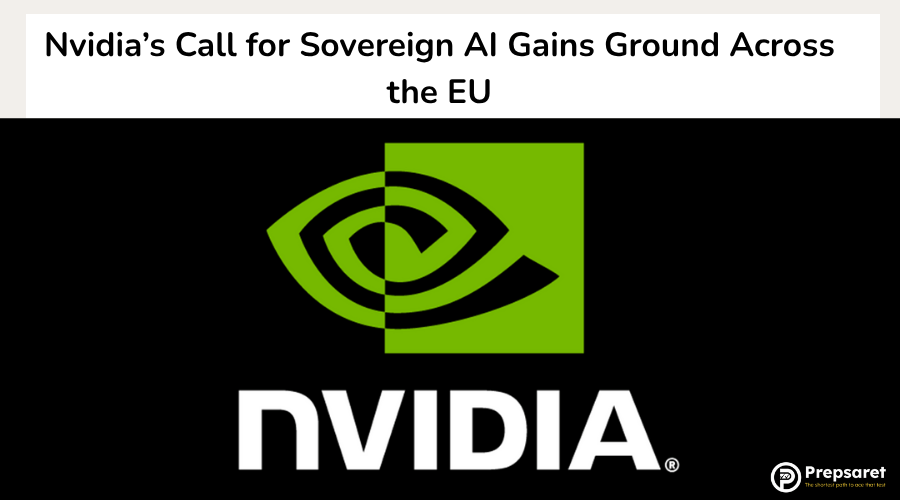Since 2023, Nvidia CEO Jensen Huang has been advocating for “sovereign AI,” a vision where each nation builds its own artificial intelligence rooted in its unique language, culture, and knowledge base.
In a recent tour across London, Paris, and Berlin, Huang not only underscored Europe’s lagging AI infrastructure but also rolled out multiple initiatives aimed at narrowing that gap. His message is now resonating in a continent eager to reduce its reliance on major U.S. tech firms.
“We are going to invest billions in here … but Europe needs to move into AI quickly,” Huang stated during a stop in Paris.
This message has been well received. British Prime Minister Keir Starmer pledged £1 billion ($1.35 billion) to expand computing capabilities, emphasizing the need for the UK to be “an AI maker and not an AI taker.”
Similarly, French President Emmanuel Macron declared the development of AI systems as “our fight for sovereignty” at VivaTech.
In Germany, Nvidia announced a new AI cloud venture with Deutsche Telekom, prompting Chancellor Friedrich Merz to advocate for digital autonomy to safeguard the country’s economic future.
Related story: OpenAI Strikes Unlikely Cloud Partnership with Google Amid Ongoing AI Competition, Sources Reveal
Europe’s Strategic Response: Gigafactories and Alliances
The continent’s tech ecosystem currently depends heavily on U.S. giants such as Microsoft, Amazon, and Google for cloud infrastructure. Meanwhile, local challengers like Mistral are still in early stages.
“There’s no reason why Europe shouldn’t have tech champions,” Mistral CEO Arthur Mensch remarked, sitting alongside Huang during a panel at VivaTech. “This is a gigantic dream.”
In France, Mistral and Nvidia are collaborating to launch a new data center equipped with 18,000 cutting-edge Nvidia chips, with more locations planned by 2026.
This aligns with the European Union’s broader $20 billion initiative to establish four AI gigafactories, aimed at bolstering regional production and lessening dependency on foreign suppliers.
An EU official confirmed that Huang has committed to dedicating chip production to support this effort.
Nvidia’s GPUs, key components in AI infrastructure globally, could anchor Europe’s move toward tech independence. This also ensures Nvidia remains essential even as nations localize their AI development.
However, obstacles remain. Europe’s steep energy costs could hinder data center expansion. These facilities already consume around 3% of the EU’s electricity, a figure projected to rise sharply due to AI.
Mistral, having raised just over $1 billion, is competing against U.S. firms that spend many times that in a single quarter.
“Hyperscalers are spending $10 billion to $15 billion per quarter in their infrastructure. Who in Europe can afford that exactly?” asked Pascal Brier of Capgemini, which partners with Nvidia and Mistral.
Despite these hurdles, Mistral continues to deliver AI models for business use, often used alongside solutions from OpenAI, Meta Platforms, and Anthropic. “Most of the time it’s not Mistral or the rest, it’s Mistral and the rest,” Brier added.
Read next: Foxconn Redirects Nearly All India-Made iPhones to U.S. as Apple Works Around Trump-Era Tariffs
Advance your career with Prepsaret! Whether you’re studying for PMP, CompTIA, or HR certifications, Prepsaret provides the tools and support to help you succeed.
Get access to top-notch study materials, realistic practice exams, and expert insights tailored to help you excel and elevate your professional path.

